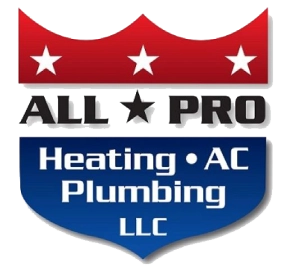Sewer Service FAQs
If you’re a homeowner in Tuscola, IL, and surrounding areas, you might have some pressing questions about your sewer system. Understanding the intricacies of your sewer line and knowing when to seek professional help can prevent costly repairs and ensure a smoothly running plumbing system. Here, we answer some of the top sewer service FAQs to help you maintain your home’s plumbing efficiently.
Request A Free Quote
How do I know if my main sewer line is clogged?
You might suspect a clogged main sewer line if you notice multiple drains in your home are backing up simultaneously. Other telltale signs include gurgling noises from your toilet, water pooling around basement floor drains, and unpleasant sewer odors emanating from your drains. If you experience any of these issues, it’s crucial to contact a reputable plumbing service to diagnose and address the problem promptly.
How to clear a clogged sewer line?
Clearing a clogged sewer line typically requires professional intervention to ensure the blockage is completely removed and doesn’t recur. Plumbers may use methods such as hydro jetting, which involves high-pressure water to dislodge debris, or a plumbing snake to break up and remove the obstruction. Attempting to clear a sewer line clog yourself can be risky and may cause more damage, so it’s best to leave it to the experts.
What is the difference between a sewer line and a drain line?
The main difference between a sewer line and a drain line lies in their functions. Drain lines transport wastewater from individual fixtures, such as sinks and toilets, to the main sewer line. The main sewer line then carries all the wastewater from the home to the municipal sewer system or a septic tank. Maintaining both systems is crucial to prevent backups and ensure efficient wastewater removal.
How often should you clean your main sewer line?
To prevent clogs and maintain the health of your plumbing system, it’s recommended to clean your main sewer line every 18 to 22 months. However, this can vary depending on the age of your plumbing system, the type of pipes you have, and whether you’ve experienced frequent blockages in the past. Regular maintenance by a professional plumber can help keep your sewer lines clear and functioning properly.
Is a clogged main sewer line an emergency?
Yes, a clogged main sewer line is considered a plumbing emergency. It can lead to sewage backups in your home, causing significant damage and posing health risks due to exposure to contaminated water. If you suspect a clog, contact a plumbing professional immediately to mitigate damage and restore proper drainage.
Does a kitchen sink go to the sewer?
Yes, the kitchen sink drains into the main sewer line, carrying wastewater from your home to the municipal sewer system or septic tank. It’s important to avoid pouring grease, oils, and large food particles down the sink, as these can accumulate and cause clogs in your sewer line.
What is RPZ backflow testing?
RPZ (Reduced Pressure Zone) backflow testing is a procedure to ensure that your backflow prevention device is functioning correctly. This device prevents contaminated water from flowing back into the clean water supply. Regular testing is essential to comply with local regulations and to protect your drinking water from contamination. At All Pro Heating AC Plumbing, we provide certified RPZ backflow testing to ensure your water supply remains safe.
What blocks a main sewer line?
Common causes of main sewer line blockages include tree roots infiltrating the pipes, accumulation of grease and fats, foreign objects flushed down toilets, and collapsed or damaged pipes. Regular maintenance and mindful disposal of waste can help prevent these blockages. If a blockage does occur, professional plumbers can use specialized equipment to identify and remove the obstruction.
What are plumbing excavation services?
Plumbing excavation services involve digging to access underground pipes that need repair or replacement. This may be necessary for severe issues such as collapsed sewer lines, extensive tree root intrusion, or when installing new plumbing systems. Although it’s a more invasive process, it’s sometimes the only way to address significant plumbing problems effectively.
How deep are sewer lines buried?
In Illinois, and similar climates, sewer lines are typically buried between 4 to 6 feet deep to prevent freezing during the winter months. However, the exact depth can vary based on local building codes, soil conditions, and the depth of the municipal sewer system. Professional plumbers have the expertise to locate and safely access these buried lines for maintenance or repair.
Contact All Pro Heating AC Plumbing For Answers To All Your Sewer Service FAQs
For comprehensive answers and expert solutions to all your sewer service FAQs, trust the professionals at All Pro Heating AC Plumbing. We are dedicated to providing reliable, efficient, and affordable plumbing services to homeowners in Tuscola, IL, and surrounding areas. Whether you need emergency repairs, regular maintenance, or have questions about your sewer system, our experienced team is here to help. Contact us today to schedule a service or consultation.
Why All Pro Heating AC Plumbing?
- Veteran & Family-Owned & Operated
- 24/7 Emergency Services
- Carrier Factory Authorized Dealer
- Licensed & Bonded
- Free Estimates on Installations
- Financing Options Available
- Backflow Certified & Backflow Testing Available

We Proudly Service Tuscola, IL and Surrounding Areas
- Charleston, IL
- Champaign, IL
- Mattoon, IL
- Monticello, IL
- Tuscola, IL
- Urbana, IL
